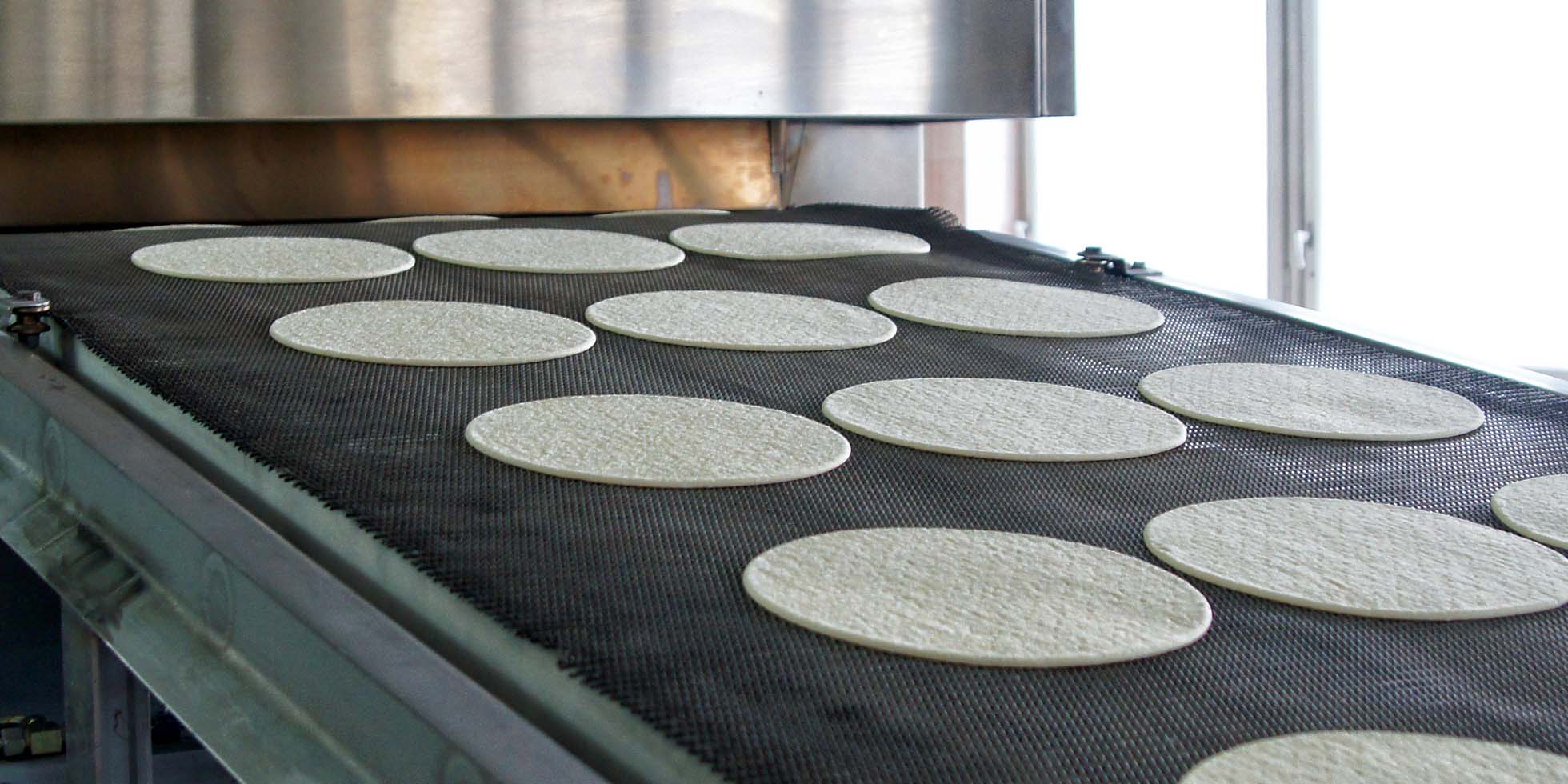In today’s food landscape, product labels like ‘Gluten-free,’ ‘Lactose-free,’ and ‘Soy-free’ are the most common claims that accommodate both allergies and the popularized idea of clean, or ‘free-from’ eating. For instance, about 1% of Americans have celiac disease, but a growing estimate of 30% of U.S. adults limit or eliminate gluten from their diets to try improving their overall health [1]. In the last several years, food manufacturers supported this demand by providing greater volume and quality of products like gluten-free baked goods and dough.
Simultaneously, we’ve seen leaps in ready-to-eat (RTE) innovation since the pandemic, when households were relegated to eating at home. Overall buyer habits felt a huge shift in 2020 as frozen food sales skyrocketed from 2.2% to nearly 22%. Even last year saw 8.6% growth despite the regained popularity of dining out [2].

Pizza is a staple RTE food for meat and cheese-lovers, and increasingly for gluten-free, lactose-free, and vegetarian diets. In fact, the U.S. frozen pizza market alone was over $6 billion in 2022, and the global gluten-free pizza crust market was projected to grow to $5 billion by 2023 [3]. The demand for gluten-free pizza is an ample opportunity to contribute to the ‘free-from’ market. However, gluten alternatives often come with steep sensory barriers that can impact the color, taste, and texture of the end product.
Challenges with Gluten-Free Alternatives
Formulating pizza dough requires certain key elements to make it thick, fluffy, and tasty. Wheat flour contains a protein called gluten, which is responsible for the dough’s elasticity and structure. While more vegan and gluten-free options are added to frozen pizza aisles, the absence of this core ingredient creates a significant formulation challenge in alternative pizza doughs.
One of the main difficulties in using plant-based proteins in dough is their water absorption capacities. Without gluten, common alternatives like soy, pea, and rice are not likely to make pizza rise as expected. They tend to absorb more water than traditional wheat flour, which can make a dough too wet and sticky. This can make pizza dough difficult to shape and result in a final product that is dense and heavy.
Needless to say, making a better-for-you, vegan, keto-friendly, gluten-free, allergen-free pizza that is comparable in taste and texture is a difficult task. Fortunately, hemp seed flour (hemp protein) is rising in popularity as a gluten-free solution that is wholesome and delicious while being perfect for pizza dough formation.
Pizza Dough Made from Hemp Hearts
Dough formulation is a critical process when making pizza, and the ingredients used can significantly impact the final product’s quality. It can also be particularly challenging, especially when using an alternative protein to wheat and gluten. Applied Food Sciences recently introduced a new ingredient called PurHP-75™ organic hemp seed protein powder, which is a great replacement for other types of proteins or flours in baking. By dehulling the shell of the hemp seed, which contains bitter tannins and green pigment, and only processing the white inner ‘hemp heart,’ PurHP-75™ delivers a neutral flavor, smooth texture, and white color. This profile supports the look and taste of a classic pizza, and provides an ideal balance of chewy and crunchy.

PurHP-75™ has exceptional emulsification and binding abilities which enable proper elasticity and structure in the dough. It also provides excellent hydration and texture with its water holding capacity of over 50%, and effective gelation. These properties are particularly useful in gluten-free baking, where it is challenging to achieve the desired texture without gluten.
Another benefit of PurHP-75™ is its ability to improve the dough’s nutritional profile. It has a rich source of essential fatty acids, vitamins, minerals, and all nine essential amino acids. It also has high protein (75%) and fiber (6%) contents, all of which can enhance the nutritional value of the final product. This is particularly important in today’s health-conscious society, where there is increasing demand for nutritious frozen pizzas and other ready-to-eat foods.
PurHP-75™ hemp seed protein is standardized to support consistent final products for a variety of baked goods, snacks, and alternative meat and dairy solutions. With its help, formulators of any volume will have new opportunities to make delicious pizzas, include more ‘free-from’ claims on RTE pizza boxes, and offer better gluten-free options on restaurant menus.
References:
- Berry, D. (2022). Embracing free-from formulations. Food Business News.
- Roerink, A. (2023). Post-Pandemic Frozen Trends: Consumers Invested in Freezer Space, Retailers Are Following Suit. American Frozen Food Institute.
- International Market Analysis Research and Consulting Group (IMARC Group). United States Frozen Pizza Market: Industry Trends, Share, Size, Growth, Opportunity and Forecast 2023-2028. https://www.imarcgroup.com/united-states-frozen-pizza-market . 2022.
- Garver, K. (2023). 4 Top Pizza Trends for 2023. Food Industry Executive.

